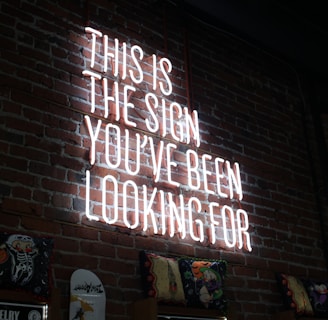Couples Counseling
How Therapy Saved Us: A Real Story About Choosing Couples Counseling
Kris Lawson, Licensed Counselor (& Gen X'er)
3/3/2025






How Therapy Saved Us: A True Story About Love, Conflict, and Choosing to Stay
When Maya and Jordan first walked into the counselor’s office, they barely looked at each other.
They sat on opposite sides of the waiting room. Arms crossed. Tired eyes. Numb.
They had been together for six years—met in college, traveled the world, adopted a dog, signed a lease, signed another. Everyone saw them as “solid.” The couple who had it together. And for a long time, that was true.
But life doesn’t always stay in sync with love.
Over the past year, things had shifted. Subtly, then suddenly. A stressful job promotion, a miscarriage they barely talked about, and a move away from friends and family—all stacked like bricks between them. Conversations turned into arguments. Arguments turned into silence. They felt like strangers living under the same roof.
Still, they hadn’t stopped loving each other. And somewhere, beneath the hurt and resentment, was a shared hope: maybe it’s not too late.
That hope brought them to couples counseling.
The First Session
They didn’t know what to expect.
Was the therapist going to tell them who was “right” and who was “wrong”? Would they be asked to share everything, even the things they’d barely admitted to themselves?
Instead, the therapist welcomed them with something simple: safety.
“This is a space where you’re both allowed to be human. Imperfect. Honest. And still worthy of love.”
It was the first time in months that either of them had felt like they could breathe.
Unpacking the Tension
In those early sessions, they began unraveling the knots they'd tied in silence.
Maya talked about how unseen she felt. How she missed the little things—morning texts, shared playlists, the warmth in Jordan’s voice when he used to say, “You’re my favorite person.”
Jordan opened up about the pressure he carried—trying to be the strong one, the fixer, and how that left no room for his own emotions. He admitted he didn’t know how to talk about the pain of the miscarriage, so he just stopped trying.
The therapist didn’t rush them. She asked thoughtful questions. Reflected things back they hadn’t noticed. She showed them how their patterns—interrupting, withdrawing, assuming the worst—were more about protection than attack.
And slowly, Maya and Jordan began to see each other again.
Learning to Reconnect
They practiced new tools in therapy and at home.
They learned how to fight fair: no name-calling, no stonewalling, no bringing up past mistakes just to score points. They learned how to pause—how to say, “Can we come back to this in 10 minutes?” instead of pushing until someone shut down.
They learned how to check in before things exploded. How to say, “I’m feeling off today. Can we talk tonight?” instead of bottling it up for days.
They didn’t become perfect. They became partners again.
They laughed more. Cooked together again. Started leaving sticky notes on the fridge like they used to—little reminders of love.
One note, from Maya, read:
“We’re growing. I see you trying. Thank you.”
The Truth About Couples Counseling
Maya and Jordan want people to know: therapy didn’t “fix” them. It taught them.
It taught them that conflict isn’t a sign of failure. It’s an opportunity to listen, to understand, to grow.
It taught them that love isn’t a constant—it’s a practice.
That even strong relationships need tending.
And most of all, it reminded them why they chose each other in the first place.
If You’re Reading This...
Maybe you’re where Maya and Jordan were—hurt, distant, unsure where to go from here.
Maybe you’re somewhere quieter. You love your partner, but something feels... off. Not bad, just not quite right.
Wherever you are: you don’t have to figure it out alone.
Couples counseling isn’t about pointing fingers. It’s about building bridges. About learning new ways to communicate, to hold space, to stay connected in a world that constantly pulls us apart.
And yes—sometimes, it saves a relationship.
Not by turning it back into what it was, but by helping it become something deeper. More honest. More resilient. More real.
Maya and Jordan didn’t go to therapy because they were failing.
They went because they believed their relationship was worth fighting for.
Maybe yours is, too.
Location
804 Salem Woods Dr, Ste 204B
Raleigh, NC 27615
Contact
kris@latchkeytherapy.com
919.642.4917
Kristin L Lawson
MS, LCMHCA
Mental Health Counselor
Latchkey Therapy PLLC provides telehealth and in-person services in North Carolina communities including Raleigh, North Raleigh, Millbrook, Southeastern Raleigh, Garner, Chapel Hill, Research Triangle Park, Greensboro, Garner, Mebane, Wake Forest, Youngsville, Franklinton, Louisburg, Henderson, NC State, UNC, Duke University, Durham, Knightdale, Morrisville, and Cary. Issues addressed include relationship counseling, premarital support, menopausal support, anxiety, stress, grief, empty nest, mature dating, couples counseling/marital counseling, parenting support, and sexual concerns.
© 2024 Latchkey Therapy PLLC
